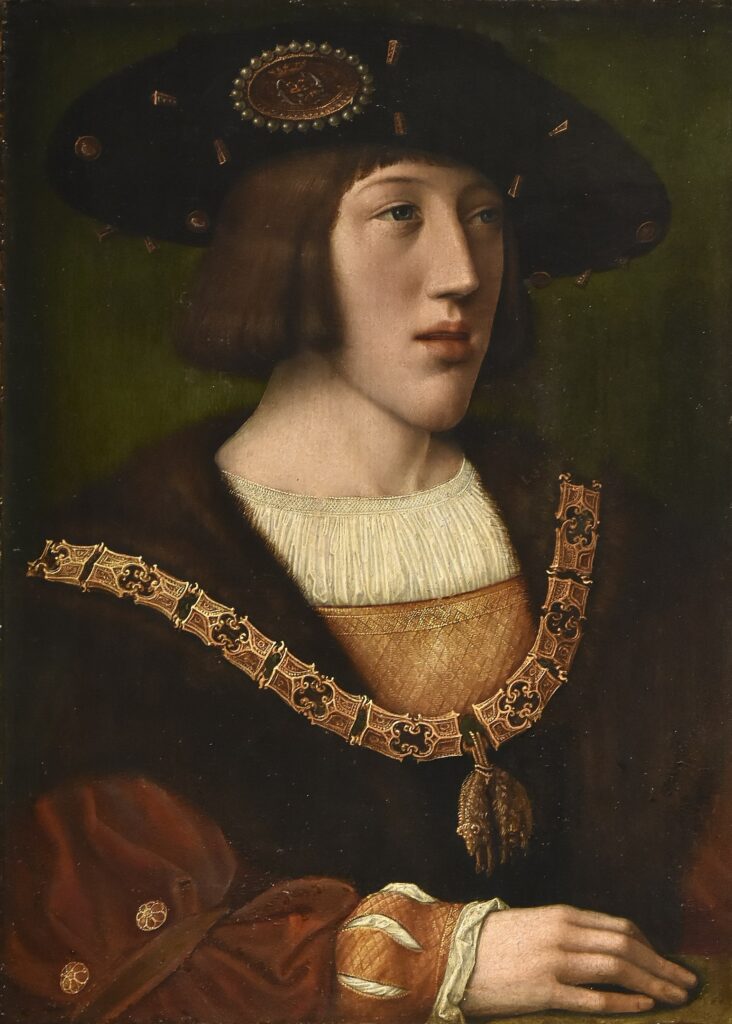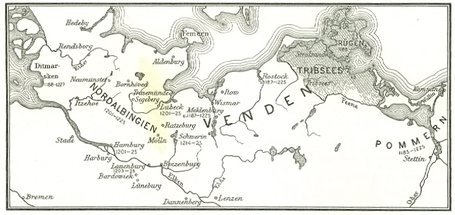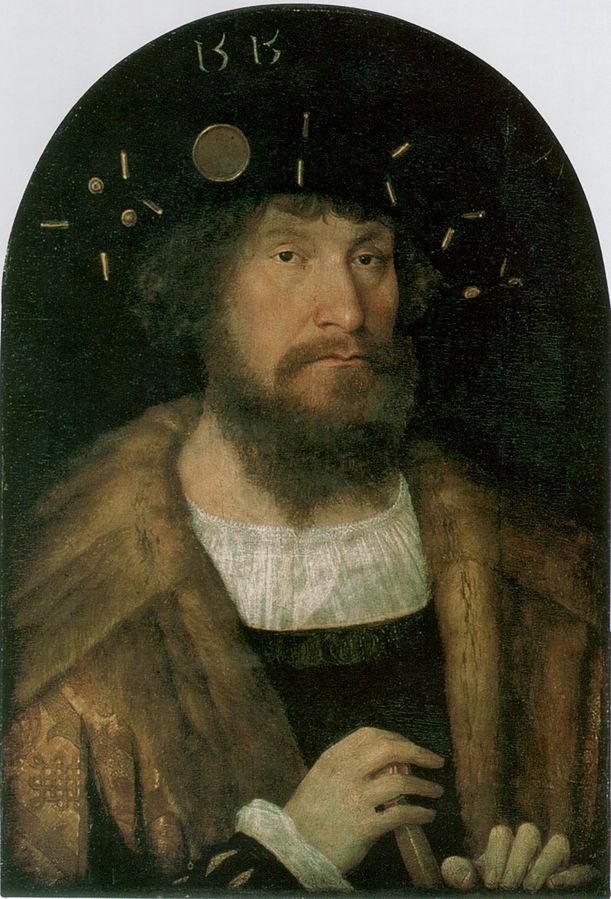Stefan Pajung and Mihkel Mäesalu
Now that the Christmas time is upon us, we thought we best share a story with you, which involves kind of a gift – and a substantial at that. Most of our readers, even if they only know little about the general history of Danish Estonia, have heard of or are at least aware of the sale of the Duchy of Estonia by king Valdemar IV Atterdag to the Teutonic Order in 1346. However, as we already have touched upon in a previous blog post, there also was an ongoing effort by his successors to regain control over the Duchy. After having looked some more into the matter, it became more and more apparent this effort continued not only into the reigns of Margrete I (died 1412), Erik VII (1396-1439) and Christopher III (1440-1448) but remained an issue well into the 16th century. Yet, we were somewhat puzzled when we came upon a privilege issued by the Holy Roman Emperor, Charles V (1500-1558), which he gave to his brother-in-law, king Christian II of Denmark (1513-1523). This document was discovered in the remains of Christian II’s archive, which had found its way to Munich. Here it was discovered by Danish historian Holger Reetdz in 1827.

Emperor Charles V, by Bernhard van Orley, c. 1520. Wikimedia Commons
Emperor Charles issued this privilege in July 1521 during Christian’s visit to Flanders, where the Danish king wanted to settle the question of the promised, yet outstanding dowry, which he should have received when he married the Emperor’s sister, Elisabeth, in 1515. The Emperor had initially withheld the dowry because Christian continued to see his Dutch mistress, Dyveke, even after he had married Elisabeth. But with Dyveke dead and buried, Christian thought it fitting, that the dowry should be paid in full.
If he had gotten the money, he would have been able to hire mercenary troops with which he could fully pacify Sweden, which had come under Christian’s control the previous year. However, Emperor Charles, who always was short of money, did not want or could not afford to pay. Christian was disappointed and would not leave Flanders empty-handed, so Charles presented him with the afore-mentioned document. With this letter, he confirmed Christian’s rights not only to the Duchy of Holstein and surrounding territories, but also his rights to the Free and Imperial city of Hamburg. Furthermore, the Emperor confirmed whatever rights Christian’s forefathers had had in Lübeck and in Germany as a whole. But what does that mean? Did the Emperor thereby present Christian with a gift truly fitting for a king? A de facto blanco check which not only confirmed Christian’s rights to much of northern Germany, but also in the Baltic, including Livonia? We have some precedence to such a document.
Christian’s forefather Valdemar II (1202-1241) had in 1214 gotten Emperor Frederick II (1212-1250) to issue a privilege, in which he relinquished control over the territories conquered by the Danes north of the rivers Elbe and Elde. This applied not only to Holstein, but Frederick also conceded the Slavic lands in Mecklenburg and Pomerania controlled by the Danish king. While Valdemar II had to give up his control over these territories in 1226-27, the memories of his conquest lingered on, as Valdemar II by the 16th century was known as Valdemar the Victorious on accord of his many conquests.

Valdemar II’s conquests in Northern Germany up to 1223. Map from “Danmarks Riges Historie”, 1900
But could this mean that Charles’ letter also was minted on the Danish king’s claims to Estonia? After all, Charles as Emperor was liege lord of the prince-bishops in Livonia too, and the Teutonic Order ruled in the rest of Livonia under charters issued by the Emperor and the Pope. The Emperor by no means meant to enforce Christian’s rights actively, but the Danish king could perhaps use the Imperial letter as proof of the Emperor’s support in his ongoing disputes with the Teutonic Order and try to reclaim northern Estonia with the document in hand. The Teutonic Knights would then probably have sought to counter any imperial claims of Christian with the confirmation of the sale of Estonia by Emperor Ludwig IV (1314-1347) from 1346 and by the pope.

However, with Christian’s troubles both in Sweden and at home growing ever larger and him being forced into exile in 1523, he never had the time to enforce his privileges or even contest their validity at the courts. It would have been interesting to see what the verdict would have been – or what concessions Christian would have gotten out of the privilege instead.


